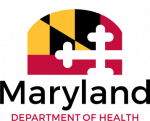Overview
Position Overview
The Division of Maternal, Child, & Family Health Services implements the State’s Maternal and Child Health (MCH) Services Title V Block Grant. The MCH Services block grant, part of the Social Security Act of 1935, is the oldest Federal/State partnership to improve the health and well-being of all mothers, infants, and children, particularly children with special health care needs. The Division also provides oversight for implementation of the Illinois regional perinatal network system, whereby birthing hospitals are given a formal designation of “level of care” based on their capacity to provide sub-specialty and acute care services. The goal is to ensure pregnant patients receive services at a facility able to meet their specific clinical needs. The MCH Division also provides oversight to school based health centers for certification purposes.
Essential Functions
- Leads (organizes, plans, oversee, implements, and evaluates) the activities and staff for the Perinatal program within the Maternal, Child and Family Services of the office of Women’s Health and Family services.
- Leads the Office of Women’s Heath & Family Services (OWHFS) implementation and oversight of codes and mandates on regionalized levels of care and ensures compliance.
- Lead and manage Women and Children’s Services quality dashboard with metrics and deliverables from perinatal network administrators.
- Supports the grant processes (Notice of Funding Opportunity (NOFO) and review of reports) for all perinatal grants and ensures deliverables and metrics are aligned with the goals and objectives of the perinatal program.
- Serves as working supervisor:
- Represents the department or serves as an adjunct member and content expert or consultant related to regionalized perinatal care at professional organization meetings or conferences, state level meetings, and when appropriate, on ad hoc committees when the subject matter is relevant to perinatal care.
- Maintains fiscal accountability of budget and grants with the laws that govern appropriate use and distribution of funds.
- Performs other duties as required or assigned which are reasonably within the scope of the duties.
About Illinois Department Public Health
In Illinois, if you have eaten at a restaurant ... required hospital or nursing home care ... vacationed at a campground or swam at a public beach or pool ... drank a glass of milk ... got married or divorced ... had a baby, the Illinois Department of Public Health (IDPH) has touched your life in some important way.
Assuring the quality of our food, setting the standards for hospital and nursing home care, checking the safety of recreation areas, overseeing the inspection of milk producing farms and processing plants, maintaining the state's vital records and screening newborns for genetic diseases are just some of the duties of IDPH.
In fact, IDPH has 200 different programs that benefit each state resident and visitor, although its daily activities of maintaining the public's health are rarely noticed unless a breakdown in the system occurs. With the assistance of local public health agencies, these essential programs and services make up Illinois' public health system, a system that forms a frontline defense against disease through preventive measures and education. Public health has provided the foundation for remarkable gains in saving lives and reducing suffering. Today, life expectancy is 80 years for women and 74 years for men compared with fewer than 50 years at the at the beginning of the 20th century.
In the past, IDPH directed state efforts to control smallpox, cholera and typhoid, virtually eliminated polio, reduced dental decay through fluoridation of community water supplies, and corrected sanitary conditions that threatened water and food supplies.
Today, IDPH has programs to deal with persistent problems that require continued vigilance – infectious diseases, such as AIDS (acquired immunodeficiency syndrome), HIV (human immunodeficiency virus), SARS (severe acute respiratory syndrome) and meningococcal disease; foodborne and communicable diseases, such as E. coli 0157: H7, monkeypox, salmonella and West Nile virus; vaccine preventable diseases; lead poisoning; lack of health care in rural areas; health disparities among racial groups, breast, cervical and prostate cancer; Alzheimer's disease; and other health threats -- sexually transmitted diseases, tobacco use, violence, and other conditions associated with high-risk behaviors. In addition, IDPH has been charged with handling the state's response to the COVID-19 pandemic and the threat of bioterrorism.
IDPH, which is one of the state's oldest agencies, was first organized in 1877 with a staff of three and a two-year budget of $5,000. IDPH, now has an annual budget of $2.9 billion in state and federal funds, headquarters in Springfield and Chicago, seven regional offices located around the state, three laboratories, and 1,200 employees.
IDPH is organized into 12 offices, each of which addresses a distinct area of public health. Each office operates and supports numerous ongoing programs and is prepared to respond to extraordinary situations as they arise.



